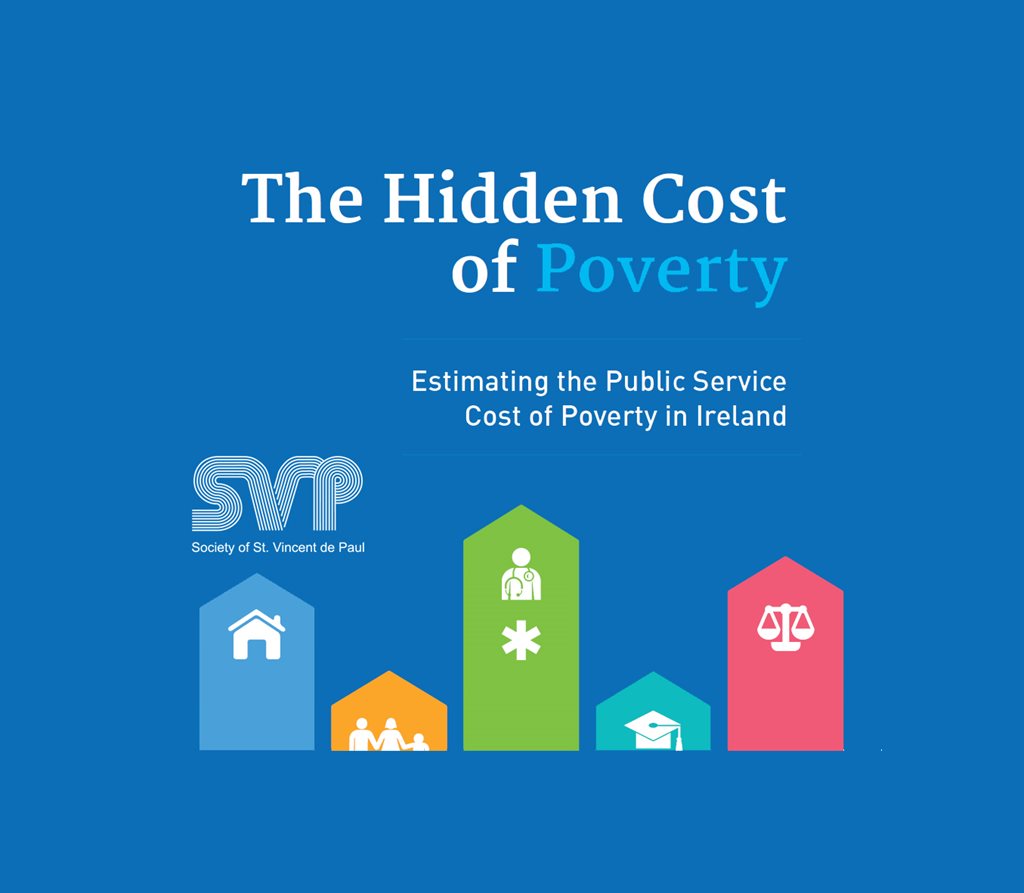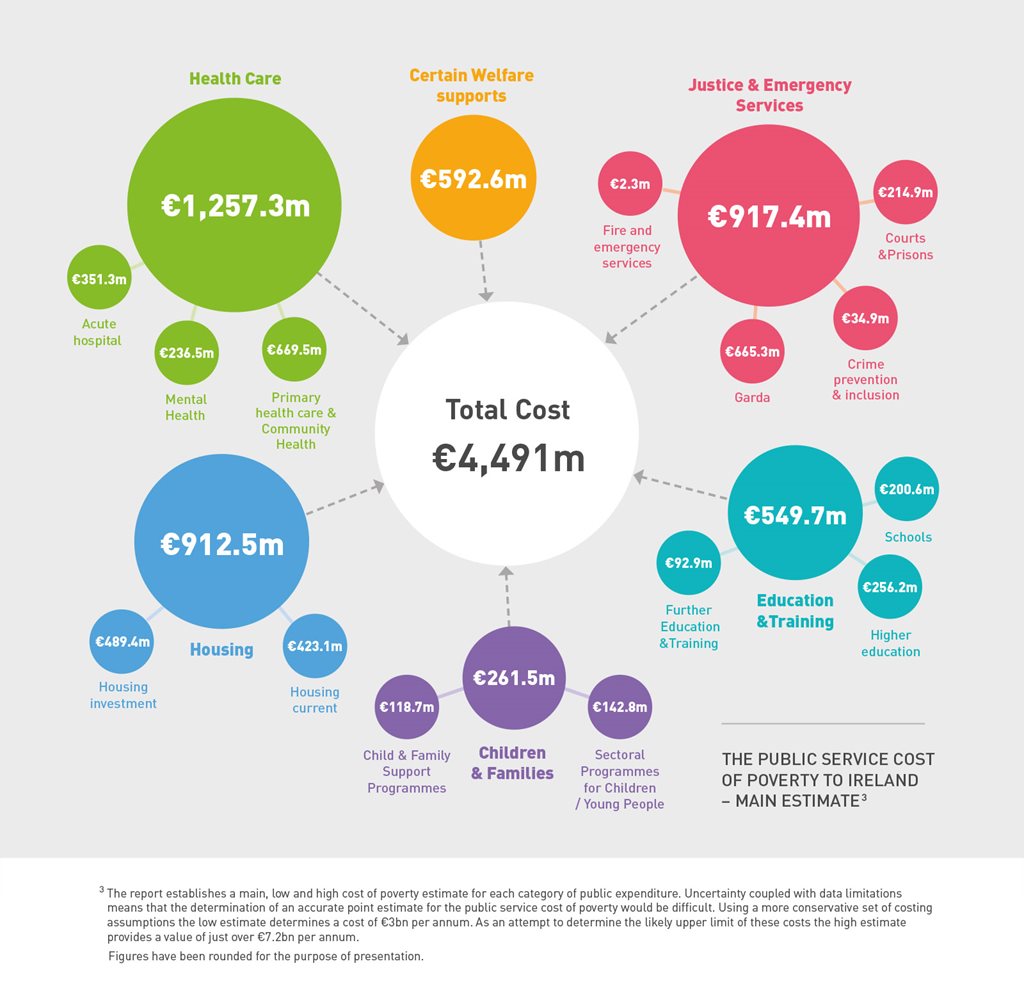
 A new comprehensive analysis of the public service impact of poverty in Ireland. It estimates that dealing with the consequences of poverty costs the state between €3 billion and €7.2 billion annually. The main estimate of €4.5 billon is more than the respective annual Government budgets for housing, justice, transport and agriculture.
A new comprehensive analysis of the public service impact of poverty in Ireland. It estimates that dealing with the consequences of poverty costs the state between €3 billion and €7.2 billion annually. The main estimate of €4.5 billon is more than the respective annual Government budgets for housing, justice, transport and agriculture.Entitled ‘The Hidden Cost of Poverty’ the report was commissioned by the Society of St. Vincent de Paul (SVP). It was written by Dr. Micheál Collins, School of Social Policy, Social Work and Social Justice, University College Dublin.
Within these areas the report examines a total of 25 individual areas or expenditure programmes.
According to the author Dr. Micheál Collins, the purpose of the research is to highlight the additional public service costs that Irish society carries as a result of current and past experiences of poverty. And to establish a benchmark for the recurring annual costs to the state of poverty.
Speaking at the launch of the report SVP National President, Kieran Stafford said that living in poverty is common in Irish society. “It is the reality for around 700,000 people across the state. The individual costs of living on an inadequate income are wide ranging. The experience of ongoing disadvantage takes a physical, psychological and social toll on the lives of too many children and adults and the effects can be long lasting.”
“The publication of this report is significant as it clearly shows that poverty carries a huge cost. Not just for those directly affected, but for everyone in society. As well as the strong moral arguments for addressing poverty, we now have important evidence on the wider societal benefits of tackling it and not allowing it to persist,” he continued.
 The report shows that while most of those living in poverty are of working age there are a large number of children living below the poverty line. About 30% of all those in poverty are aged 17 years and under, averaging about 225,000 children each year. About 55,000 pensioners live on an income below the poverty line and represent approximately 8% of those living in poverty.
The report shows that while most of those living in poverty are of working age there are a large number of children living below the poverty line. About 30% of all those in poverty are aged 17 years and under, averaging about 225,000 children each year. About 55,000 pensioners live on an income below the poverty line and represent approximately 8% of those living in poverty.
Dr. Collins said “Alongside the individual costs, poverty is responsible for other costs. In particular, the presence of poverty in a society triggers demands on the public purse. Poverty triggers needs and responses by the state, not always at the ideal level of adequacy. But nonetheless involving resources that are allocated to addressing the fallout from current and past experiences of poverty.”
“Year after year poverty imposes substantial costs on all of Irish society. While these fall heaviest on those living on the lowest incomes in our society. This report highlights that there are substantial costs borne by all. Consequently, there are benefits for all associated with a coherent national strategy to address and reduce poverty and its consequences,” said Dr. Collins.
SVP Head of Social Justice Dr. Tricia Keilthy said; “This report clearly demonstrates why we need much greater investment measures to prevent people from falling into poverty. Making the right investments now means we can reduce expenditure on mitigating the effects of poverty in the long term. In other words, we need to invest to save.”
Commenting on the draft Programme for Government agreement Dr. Keilthy said; “There are many welcome commitments in the draft deal. Including the progressive realisation of a living wage for low paid workers and increased investment in key public services. The commitment to implement the new social inclusion strategy, A Roadmap for Social Inclusion 2020-2025 is also welcome. However, both this strategy and draft Programme for Government fail to guarantee that social welfare rates will be benchmarked at a level sufficient to lift people above the poverty line. And to provide them with a Minimum Essential Standard of Living. Without this commitment, the best efforts of the new Government to reduce poverty will be blunted.”
“Given we are faced with economic uncertainty, it is important that the new Government ensures all policies and programmes at design and implementation are assessed in relation to their likely impact on poverty living in poverty,” she concluded.